Hospital turned into bunker: Pregnant woman’s dramatic escape from Ukraine to Queensland
For many Queenslanders the war in Ukraine is much closer to home. Here, some locals share incredible stories of terrifying escapes, including a woman’s desperate dash while almost six months pregnant, leaving behind her husband to fight Russian troops.
QLD News
Don't miss out on the headlines from QLD News. Followed categories will be added to My News.
Destroyed homes, lost loved ones and debating whether to flee their own country or stay and fight - this is the horrific reality for terrified Ukrainians as Russia’s bloody war rages on. And for some Queenslanders, the war is much closer to home.
Queenslanders whose families are in Ukraine have revealed their heartbreaking stories as they urge the West to show solidarity with the Eastern European nation as it fights to retain its freedom.
Tetiana and Daryna
Daryna* endured a harrowing escape from Ukraine while almost six months pregnant, leaving behind her husband as he fights in the Armed Forces of Ukraine against Russia.
Her sister-in-law, Tetiana - also originally from Ukraine - was able to provide refuge in Queensland.
“My husband and I were awoken at 5.40am from a very loud explosion,” Daryna said.
“My husband, two minutes later, was urgently called to get back to his military base because they were advised that the war had started.
“He was given a phone call at 5.40am and at 6am, he had already left.”
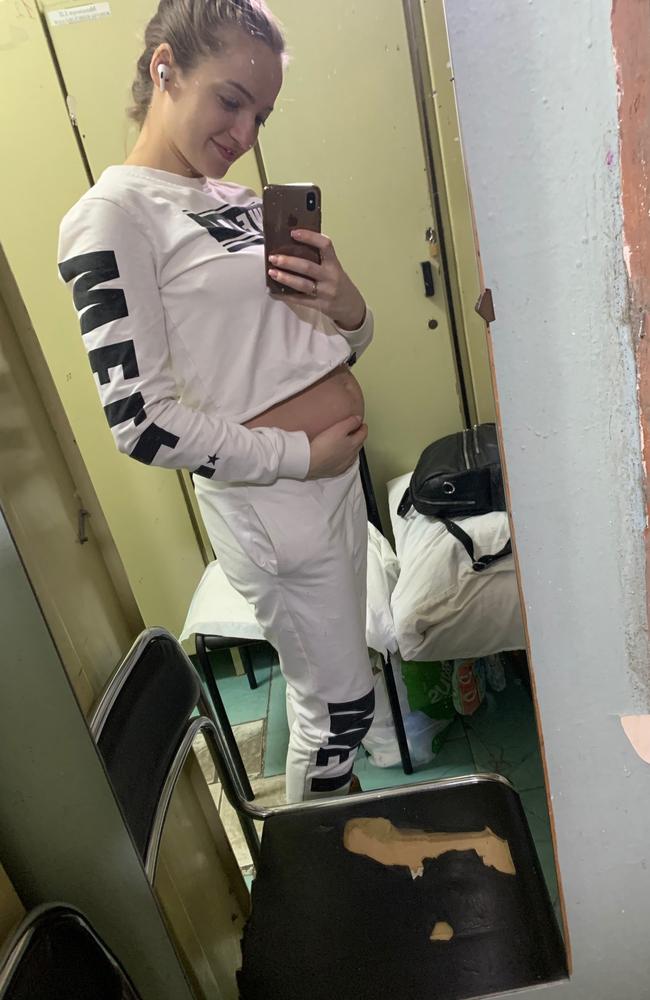
In disbelief, Daryna decided the best place for her to go was the hospital, arriving at the Kyiv City Maternity Hospital #5 where she stayed from February 24 until March 1.
“Once we arrived at the hospital, shortly after, the hospital was notified that they were in a state of war,” Daryna said.
“I was [in danger of entering] early labour and it’s equivalent of a miscarriage at 5 ½ months pregnant. So, they put me in a room and I was given an IV.”
For the majority of her stay, all the pregnant women were stuck in the basement of the hospital which essentially was turned into a bunker.
“All the pregnant women were sleeping on the floor…some women were sleeping on stools… and some women were on hard benches, and then the ones that were 8-9 months pregnant, of course they were on the mattresses,” Daryna said.
Because of the central location of the hospital, bombs, missiles and shelling were heard all day and night.
“No one could get any sleep at all. Everyone was paralysed with fear that the bomb might hit the maternity hospital,” Daryna said.
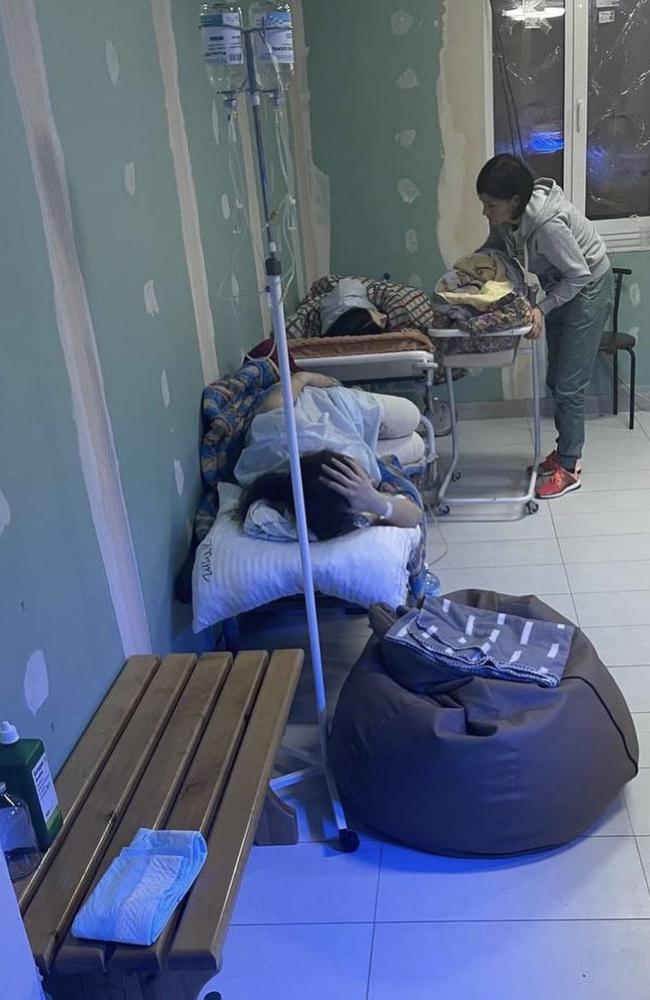
On March 1, Daryna was able to flee the hospital and Kyiv thanks to her brother-in-law, Roman, who drove her to the train station.
Once boarding the train which took her to Lviv in western Ukraine, Daryna proceeded to take another bus to the Polish border and was able to cross the border into Poland on foot, then she took another bus to Warsaw where she flew to Australia.
Daryna was the only one of Tetiana’s family in Ukraine who was able to seek refuge in Australia, leaving behind her parents and 12-year-old brother.
Tetiana’s three brothers, 93-year old grandmother, aunts, nieces and nephews remain in Kherson, Ukraine and have been cut off from water, electricity and food.
Daryna and Tetiana tearfully pleaded to all countries and world leaders to push for a no-fly zone or “close the sky” and protect Ukraine and it’s citizens from Russia’s ruthless killing and mass destruction of their country.
“It’s genocide. They’re trying to get rid of the whole nation altogether,” Daryna said.
“I love my country very much, I love my husband very much, and I really hope for peace to come soon.”
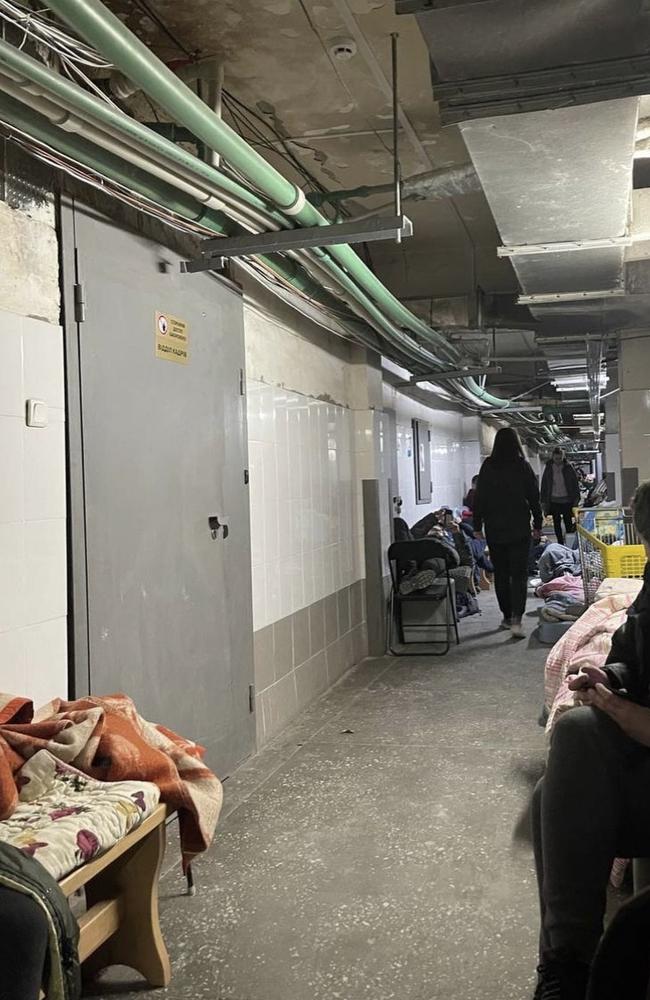
Violetta Shaw
Violetta Shaw wakes up every morning and sends a text message to her loved ones in Ukraine to check if they are still alive.
Ms Shaw and her two children, Michael and Nadiya who are originally from Kharkiv, Ukraine, attended the most recent rally in Brisbane, protesting against the Russia invasion into Ukraine and supporting Ukrainians and their close friends who are fighting.
“I have my Godson, at the moment he is fighting. I have my Godmother’s grandson, he is fighting. Two of my very close friends, their kids are fighting as well. My friends are refusing to leave the country because their sons and brothers are fighting,” Ms Shaw said.
“Every morning I wake up, and I text to see if they are alive or not. It’s a lot of tears, and lots of struggle and we are really hoping it’s going to end soon.”
Kharkiv is a largely Russian-speaking part of the country and was the first capital of Ukraine, and Ms Shaw wants the world to understand that despite regions which are predominantly Russian-speaking, the people are still on the side of Ukraine.
“We want to prove to the rest of the world that Russian-speaking cities in Ukraine do not hurt Russian-speaking people,” Ms Shaw said.
Polina Eroshenko
Polina Eroshenko* moved to Australia 12 years ago from Russia, and her father’s side is Ukrainian so she would spend every second Summer in Ukraine with her family.
Her nephew, his wife, teenage son and five-month old baby were living in Chernihiv, Ukraine until recently when they narrowly escaped as Russian shelling closed in.
Ms Eroshenko described how her family was forced to seek protection in the basement of their family beauty salon in order to survive.
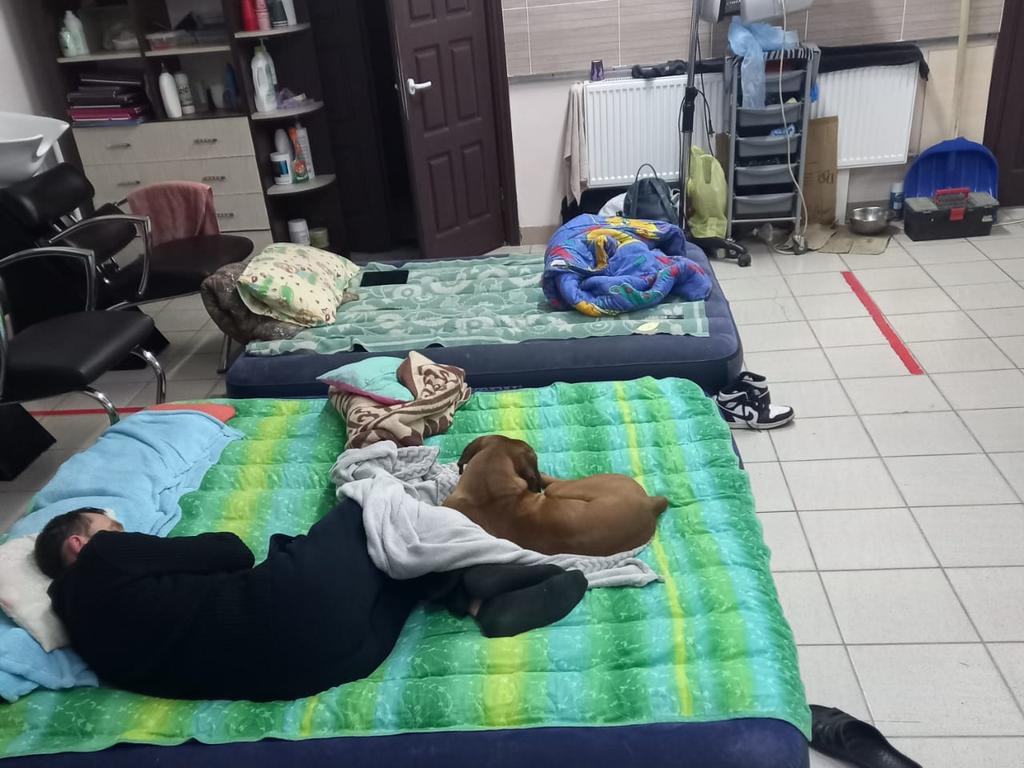
“The first week, it was all so new and shocking that they were really scared of all the noises and the shelling and things like that…that was probably the hardest for them, that adjustment period,” Ms Eroshenko said.
After days stuck in the basement, they discovered that their home had been bombed.
“One bomb went through his actual home….then they lost the hospital where the baby went to,” Ms Eroshenko said.
“One of his messages was, ‘Everything my baby saw since being born is now destroyed. All the memories that she’s made are now gone.’”
Ms Eroshenko said all the bridges that surrounded Chernihiv were blown up in the first few days of the war by both Russian and Ukrainian forces, preventing Ukrainians from escaping and Russians entering.
“There was only one very, narrow passage out of the city but that was under very heavy shelling, so that was very hard to try and get out,” Ms Eroshenko said.
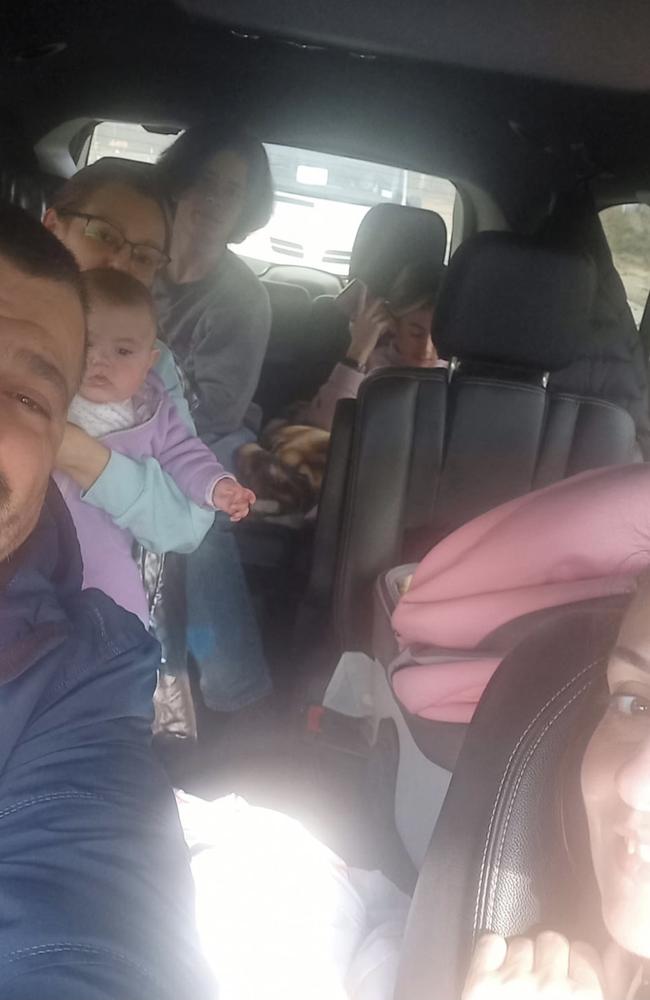
Her nephew had heard that a family from a nearby basement had tried to escape, but didn’t survive.
“It was a big risk. But once all of the fighting got really close to them…I was just sitting having dinner with a friend, and I look down and see a message and he’s like ‘Okay that’s it. We are leaving and I’m taking my immediate family with me in the car and we are up and gone. Just see what happens,’” Ms Eroshenko said.
“I’m realising that that could be the last message that I get from him.”
“They managed to miss a bomb that only touched the back of their car, but someone behind them wasn’t so lucky,” Ms Eroshenko said.
“But he said we still drive, he kept updating me, we’re still driving, we still haven’t left the zone of all the fighting. So I just kept looking at my phone at the time, checking all the time.”
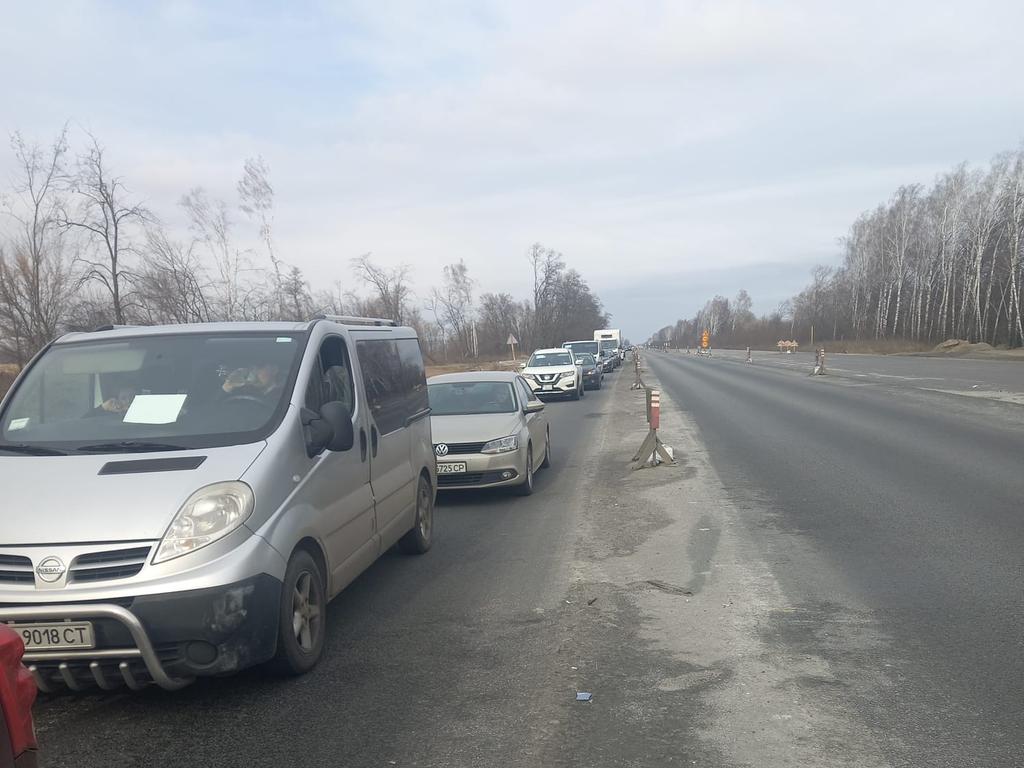
It took them three days of driving, almost non-stop, to reach the city of Lviv in western Ukraine, where they have been staying with friends for the time being.
Ms Eroshenko explained how stressful it was not knowing if her family was alive.
“Whilst it’s hard for me, I know it’s much harder for them. They know they’re being supported and that there’s someone there to listen,” Ms Eroshenko said.
Brayden McKay and Karina Kunitskaya
Australian-born Brayden McKay and his fiance Karina Kunitskaya, who is originally from the annexed region of Crimea, lived in the Ukrainian city of Kyiv working as English teachers until they had to leave once word of Russia’s invasion began mid-February.
Mr McKay and his family have been working hard to help Ms Kunitskaya’s family seek refuge in Australia as Crimea, where her family is from, continues to remain cut off from most of the world since 2014 when Russia invaded.
“A lot of Crimeans are suffering from sanctions…we don’t have any international staff, nothing from other countries. Only everything that is made by Russia,” Ms Kunitskaya said.
“You can’t do anything. You can’t have money, you can’t work for international companies…there are no opportunities for any foreigners to visit Crimea unless you have a Russian or Ukrainian passport.”
Mr McKay explained that Ms Kunitskaya’s brother and father could be conscripted to fight for Russia in Ukraine at any moment, which is why it has been so important for them to leave.
“If Putin announces mobilisation, then everyone [from Crimea is] going to have to go and fight against Ukraine and this is terrible,” Ms Kunitskaya said.
*Some names have been changed or omitted to protect the safety of the interviewees.
Originally published as Hospital turned into bunker: Pregnant woman’s dramatic escape from Ukraine to Queensland



